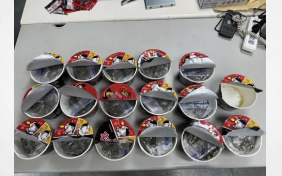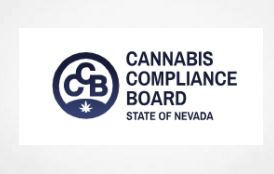AUTHORED BY: JORDAN ZOOT
Managing Director & CEO – aBIZinaBOX Inc. – CPA’s
Accounting, Attest, Tax, Regulatory Compliance and Technology
Evanston HQ [Chicago] – Oakland – New York
CPA.CITP.CISM.CGEIT.CGMA
Verticals: California Commercial Cannabis Industry, Alt. Investments/Private Equity, Real Estate, Professional Services, IRS Controversy, OPR Practitioner Represenatio and Distressed Assets/Debt
Technology :
Advanced & High Complexity Cloud Integrator
AICPA PCPS, CAQ, IMTA, CITP
ISACA CGEIT, CISM
Technologies & Platforms – with Certifications and Full Partner Program Members
Google Cloud Partner – G Suite, Education, Chrome, Android
Google Partners – Adwords & Analytics
Microsoft CSP Silver Partner – Office 365, Azure Platform
Amazon Web Services – Consulting Partner, EC2, S3, Dockers
Collab., Sync & Sharing – box.com, Dropbox Business, cloudHQ.net
Enterprise Apps – salesforce.com, Evernote Business, Zendesk
workato.com – Advanced Integration Platform, Fishbowl Inventory & ERP
Financial Apps – Xero Gold Accounting Partner, METRC,
AICPA – PCPS, CAQ Member Firm
State CPA Societies in California, Florida, Illinois, New York and Texas
Members – ICAEW, CIOT, CAANZ, and The Tax Institute in the UK and Australia
Expertise with Regulatory Compliance – US – HIPAA, FINRA, SEC Rule 17(a)(3)/(4), eDiscovery, FINCEN – EU- EBA, ESMA, EIOPA UK – BoE, PRA, FCA
AICPA Member Firm
– Center for Audit Quality Firm# 2092102
– Private Companies Practice Section Firm# 02092102
Link to https://abizinaboxcannabis.com/question/distributor-licensing-reqs/
Or Read On
What are the licensing provisions applicable to Distributors?
Distributor License – Delivery – Packaging – Testing
Distributor License – Delivery – Packaging – Testing § 5300. Non-Cannabis Distribution Activities A distributor shall not store non-cannabis goods or non-cannabis accessories that are to be sold to another party on any licensed premises. Additionally, a distributor shall not distribute noncannabis goods or non-cannabis accessories at licensed premises. For the purposes of this section, non-cannabis goods are any goods that do not meet the definition of cannabis goods as defined in section 5000(c) of this division.
Proposed Regs. – October 19, 2018
Authority: Sections 26013, Business and Professions Gode. Reference: Section 26070, Business and Professions Code.
§ 5301. Storage-Only Services
A distributor may provide cannabis goods storage-only services to a licensed cultivator, manufacturer, microbusiness, nonprofit, or another distributor, unrelated to the quality assurance and laboratory testing processes.
Proposed Regs. – October 19, 2018
Subsection (b) has been amended to clarify that storage services for other licensees for cannabis goods is limited to storage of cannabis goods that are packaged as they will be sold at retail. This amendment was necessary to ensure that cannabis goods are only stored after they have been packaged and thus protected from contamination.
Subsection (c) was added to require that cannabis goods stored under this section be stored in accordance with section 5302 regarding storage of batches for testing. This addition is necessary to ensure that all cannabis goods and batches stored on a distributor’s premises are stored in the same manner and readily identifiable. The addition of subsection (c) has required a renumbering of the former subsection (c), to subsection (d).
Subsection (d), formerly (c), has also been amended to clarify that the prohibition on storing live plants, does not apply to seeds. This change was necessary because the Act defines live plants to include seeds and the Bureau did not intend to prevent a distributor from storing seeds on the premises.
Authority: Section 26013, Business and Professions Code. Reference: Section 26070, Business and Professions Code.
§ 5302. Storage of Batches for Testing
(a) A distributor shall ensure that all cannabis goods batches are stored separately and distinctly from other cannabis goods batches on the distributor’s premises.
(b) A distributor shall ensure a label with the following information is physically attached to each container of each batch:
(1) The name and license number of the manufacturer or cultivator who provided the batch;
(2) The date of entry into the distributor’s storage area;
(3) The unique identifiers and batch number associated with the batch;
(4) A description of the cannabis goods with enough detail to easily identify the batch;
(5) The weight of or quantity of units in the batch; and
(6), The best-by, sell-by, or expiration date, of the batch, if any.
Proposed Regs. – October 19, 2018
Subsection (b)(1) has been amended to require that the label that is attached to each batch include the licensed premises address of the licensed manufacturer or licensed cultivator who provided the batch. The amendment to include the premises address is necessary for consistency with the requirements for the certificate of analysis and chain of custody that testing laboratories must generate. The addition of the word “licensed” to the words “manufacturer” and “cultivator” is necessary for consistency in terms throughout the regulations.
Authority: Section 26013, Business and Professions Code. Reference: Sections 26110 and. 26120, Business and Professions Code.
§ 5303. Packaging and Labeling
(a) A distributor may package, re-package, label, and re-label cannabis for retail sale.
(b) A distributor shall not package, re-package, label, or re-label manufactured cannabis products except when the distributor also holds a manufacturing license and is packaging, re-packaging, labeling, or re-labeling its own manufactured cannabis products.
(c) Notwithstanding subsection (b) of this section, if it is determined during laboratory testing that a manufactured product is labeled with the incorrect amount of TAC per package or serving but is within the THC limits for sale, the distributor may re-label the package with the accurate THC amount.
Proposed Regs. – October 19, 2018
The title of this regulation has been amended to include rolling as the Bureau allows distributors to roll pre-rolls.
Proposed subsection (a) has been amended to provide clarity regarding how a licensed distributor may package, re-package, label, and re-label cannabis for retail sale. Specifically, subsection (a)(1) requires a distributor’s packaging to meet certain requirements until January 1, 2020, including: packaging that shall protect the cannabis, including pre-rolls, from contamination; packaging that shall be tamper evident; packaging that shall be resealable if it contains more than one serving; and packaging that shall not imitate any package used for goods that are typically marketed to children. Proposed subsection (a)(2) imposes additional requirements on a distributor’s packaging starting January 1, 2020, including: packaging that shall be child-resistant until the package is first opened; packaging that is labeled with the statement, “this package is not child-resistant after opening;” and provides an exception to these requirements for immature plants and seeds. These changes were necessary for consistency between the licensing entities regarding the packaging of cannabis goods. The changes were also necessary to provide additional clarity to licensees regarding how to satisfy MAUCRSA’s packaging requirements. The Bureau determined that a transitional period assures that cannabis goods will be packaged in a child-resistant manner, while ensuring that licensees have an adequate amount of time to comply with packaging requirements.
The Bureau has amended subsection (b) to clarify that a distributor may not process cannabis but may roll pre-rolls that consist exclusively of any combination of flower, shake, leaf, or kief. This amendment was necessary because the prior language was confusing and was not clear that the intent of the section was to allow distributors to roll pre-rolls and not simply package pre-rolls that had already been rolled. Additionally, subsection (b) specifies that pre-rolls shall be rolled prior to regulatory compliance testing. This is necessary, because the paper of a pre-roll will be consumed with the cannabis, thus the entire pre-roll must undergo regulatory compliance testing to ensure the pre-roll is safe for consumption. Proposed subsection (b), which specified that distributors could only package, re-package, label, and re-label cannabis goods if they had a manufacturing license and were doing the activities on their manufacturing premises, has been deleted due to the changes in subsection (c).
Proposed subsection (c) has been amended to allow distributors to label and re-label a package containing manufactured cannabis goods with the amount of cannabinoids and terpenoids based on laboratory testing results. The subsection previously only allowed distributors to re-label the package if the testing results were different than what was labeled. This was required because the State Department of Public Health required all manufactured products to be labeled at the manufacturer, however, the State Department of Public Health has proposed to amend their regulations to allow for labeling of cannabinoids and terpenoids to occur at the distributor premises after the distributor has received the testing results. This change was necessary because the Bureau and State Department of Public Health have determined that re-labeling was often necessary because the testing laboratory results did not match what was labeled on the package. Further, the certificate of analysis would often show that the cannabis goods had failed testing because of the label claim. This created confusion for licensees about whether a batch was able to be sold at retail. With this change, the label on the cannabis goods will match the certificate of analysis and the certificate of analysis will no longer show a batch failed for label claims on cannabinoids or terpenoids.
New Section
§ 5303.1 Net Weight of Dried Flower
This section has been amended to provide a 3% variance for moisture loss in dried flower instead of a 2.5% variance. The Bureau has conducted additional research and determined that 3% is consistent with the variance for other types of goods established by the National Institute of Standards and Technology, thus a change was necessary.
The reference section has been amended to add Business and Professions Code section 26152. This was necessary for accuracy.
Authority: Section 26013, Business and Professions. Code. Reference: Sections 26013 and 26120, Business and Professions Code.
§ 5304. Testing Arrangements
After taking physical possession of a cannabis goods batch, the distributor shall contact a testing laboratory and arrange for a laboratory employee to come to the distributor’s licensed premises to select a representative sample for laboratory testing.
Proposed Regs. – October 19, 2018
This section has been amended to add the term “licensed” in front of “testing laboratory.” This change was necessary for consistency of terms used throughout the regulations. A grammatical change was also made after reference for this section.
Authority: Section 26013, Business and Professions Code. Reference: Sections 26110, Business and. Professions Code.
§ 5305. Testing Sample
(a) The distributor shall ensure that the batch size from which the sample is taken meets the requirements, of this division.
(b) A distributor or an employee of the distributor shall be physically present to observe the laboratory employee obtain the sample of cannabis goods for testing and shall ensure that the increments are taken from throughout the batch.
(c) Tfie sampling shall be video recorded with the batch number stated at the.beginning of the video and a visible time and date indication on the video recording footage. The video recordings shall be maintained for 180 days.
(d) After the sample has been selected, both the distributor and the laboratory employee shall sign and date the chain of custody form pursuant to section 5709 of this division, attesting to the sample selection has occurred. (e) A distributor shall not assist the laboratory employee nor touch the cannabis goods or the sampling equipment while the laboratory employee is obtaining the sample.
Proposed Regs. – October 19, 2018
This section has been amended to clarify that the 90-day storage retention period for the video recordings of the sample selection is 90 calendar days. This was necessary to provide consistency with other sections of the regulations where the Bureau has clarified business days and calendar days.
Authority: Section 26013, Business and Professions Code. Reference: Sections 26104 and 26110, Business and Professions Code.
New Section
§ 5305.1. Resampling
This section has been added to clarify that once a sample has been obtained from a batch for regulatory compliance testing, a licensed distributor may not arrange for or allow another licensed testing laboratory to sample or re-sample the same batch for regulatory compliance testing, unless all of the requirements of section 5705 subsection (g) have been met. This section is necessary to prevent licensees from “shopping” between testing laboratory licensees for favorable testing results. It also ensures the Bureau is kept apprised of any testing activities conducted by licensed testing laboratories.
§ 5306. Laboratory Testing Results
(a) A sample “passes” a laboratory test when the sample meets specifications in chapter 6 of this division.
(b) When a batch from a manufactured or harvest batch passes, the cannabis goods may be transported to one or more retailers.
(c) A sample “fails” a laboratory test when the sample does not meet specifications in chapter 6 of this division.
(d) If a failed sample was collected from a batch and the batch could be remediated pursuant to section 5727 of this division, a distributor may transport or arrange for the transportation of the batch to a cultivator or manufacturer. for remediation.
(e) A distributor shall destroy a batch that failed laboratory testing and cannot be remediated pursuant to section 5727 of this division.
Proposed Regs. – October 19, 2018
Subsection (a) has been revised to amend the word “sample” to “batch.” This change is necessary for clarity because while a sample from the batch is tested, it is the whole batch that passes testing. Subsection (a) has also been revised to correct a typographical error.
Subsection (b) of this section has been amended to specify that a printed copy of the certificate of analysis for regulatory compliance testing shall accompany the batch and be provided to the licensee receiving the cannabis goods. This change was necessary to ensure that a licensee receiving a batch of cannabis goods that had been tested could verify the testing results by having a copy of the certificate of analysis.
Subsection (c) has been revised to amend the word “sample” to “batch.” This change is necessary for clarity because while a sample from the batch is tested, it is the whole batch that passes testing. The subsection has also been amended to correct a typographical error.
Subsection (d) has been amended to clarify a failed batch and not failed sample may be remediated. This change is necessary for clarity because while a sample from the batch is tested, it is the whole batch that fails testing. The subsection has also been amended to include the term “licensed” in front of “manufacturer.” This change was necessary for consistency of terms used throughout the regulations. This subsection has also been amended to include requirements for remediation of cannabis goods that fail laboratory testing. The subsection requires distributors to ensure that a remediation plan is submitted by a licensed manufacturer to the State Department of Public Health or by a licensed microbusiness authorized to engage in manufacturing to the Bureau within 30 calendar days of issuance of the certificate of analysis. The subsection would also require the distributor to ensure that the manufacturer, or microbusiness authorized to engage in manufacturing, begins remediation within 30 calendar days of receiving approval to remediate the goods. The subsection would also require that if the distributor cannot arrange for remediation within 30 calendar days of receiving a certificate of analysis then, the cannabis goods must be destroyed immediately. These changes are necessary to ensure that cannabis goods that have failed testing are remediated in a reasonable amount of time and do not remain on the premises of the distributor or microbusiness for an extended period of time. The Bureau determined that 30 calendar days was necessary as it provides a sufficient amount of time to remediate a batch, while minimizing the potential for failed product to be diverted into the illegal market.
Lastly subsection (e) of this section has been amended to specify in accordance with the new provisions of subsection (d) that a distributor shall destroy a batch that has failed laboratory testing and cannot be remediated within 30 calendar days of issuance of the certificate of analysis. The Bureau determined that 30 calendar days was necessary as it provides a sufficient amount of time to destroy a batch that cannot be remediated, while minimizing the potential for failed product to be diverted into the illegal market.
This section amends the references section to fix a typographical error.
Authority: Section 26013, Business and Professions Code. Reference: Sections 26070, 26104 and 26110, Business and Professions Code.
§ 5307. Quality-Assurance Review When a distributor receives a certificate of analysis stating that the sample meets specifications required by law, the distributor shall ensure the following before transporting the cannabis goods to one or more retailers:
(a) The certificate of analysis the distributor received from the testing laboratory is the certificate of analysis that corresponds to the batch;
(b) The label on the cannabis goods is consistent with the certificate of analysis regarding cannabinoid content and contaminants required to be listed by law;
(c) The packaging complies with applicable packaging laws including, but not limited to, Business and Professions Code section 26120;
(d) The packaging is tamper-evident. “Tamper-evident’ means a one-time-use seal is affixed to the opening of the package, allowing a person to recognize whether or not the package. has been opened;
(e) The weight or count of the cannabis batch comports with that in the track and trace system. A distributor sha11 use scales as required by the Act; and
(f)All events prior to receipt have been entered into the track and trace system.
Proposed Regs. – October 19, 2018
This section has been amended to clarify that the certificate of analysis is for regulatory compliance testing and to add the term “licensed” in front of “distributor” in the first paragraph of the section for consistency of terms used throughout the regulations. This section has also been amended to replace the term “sample” with “batch.” This change is necessary for clarity because while a sample from the batch is tested, it is the whole batch that passes testing and is found to meet specifications required by law. This section has also been amended to clarify that cannabis goods that are being transported to retailers or microbusinesses authorized to engage in retail sales shall be packaged as they will be sold at retail. This inclusion was necessary for consistency with other regulatory sections and to provide clarity to licensees. This section has also been amended to clarify that in transporting cannabis goods to a retailer or microbusiness, the microbusiness must be one that is authorized to engage in retail. This change is necessary for clarity and consistency with terms used throughout the regulations.
Subsection (a) has been amended to specify the certificate of analysis is for regulatory compliance testing rather than referencing section 5714. The subsection has also been amended to add the term “licensed” before testing laboratory. These changes are necessary for clarity and consistency in terms used throughout the regulations. The section has also been amended to clarify that the cannabis goods may be transported to another distributor once the certificate of analysis has been received. This addition is also necessary to align with approved and filed Senate Bill 311, amending Business and Professions Code section 26110 to enable licensed distributor to licensed distributor transfers.
Subsection (b) is a new subsection that has been added to require that in order to transport cannabis goods to another licensee with the certificate of analysis, the certificate of analysis must be less than 12 months old. This is necessary to place an end date on the time frame during which cannabis goods can be transported from licensed distributor to licensed distributor without undergoing new testing. The Bureau determined that 12 months is necessary because it assures that the results found on the certificate of analysis are accurate.
Former subsection (b) is now subsection (c) has been amended to clarify the quality assurance duties of a licensed distributor or licensed microbusiness authorized to engage in distribution. Specifically, this section provides that if the cannabis goods are labeled with the content for cannabinoids, terpenoids, Total THC, and/or Total CBD prior to receiving the certificate of analysis for regulatory compliance testing, the licensed distributor shall ensure that the labeled amounts are accurate in accordance with section 5307.1 of the Bureau’s proposed regulations. If the cannabis goods are not labeled with the content for cannabinoids, terpenoids, Total THC, and/or Total CBD prior to receiving the certificate of analysis for regulatory compliance testing, the licensed distributor shall label the cannabis goods with the amounts listed on the certificate of analysis pursuant to section 5303 of the Bureau’s proposed regulations. These changes were necessary to provide additional clarity regarding the requirements of a licensed distributor or licensed microbusiness authorized to engage in distribution when checking the labels of cannabis goods. These changes were also necessary for consistency with the State Department of Public Health’s regulations.
Subsection (e) is a new section that specifies that cannabis goods cannot be transported if they have exceeded their best-by, sell-by, or expiration date if one is provided. This is necessary to ensure the safety of consumers by prohibiting expired cannabis goods from being transported to retail.
Subsection (d) is now subsection (f) and has been amended to specify that licensed distributors shall use scales as required by the Business and Professions Code and not the Act. The Bureau determined that the citation to the Act was incorrect and that scales are governed under Division 5 of the Business and Professions Code.
Subsection (g) has been amended to state that a licensed distributor or licensed microbusiness authorized to engage in distribution shall ensure that all events prior to the receipt of the certificate of analysis for regulatory compliance testing have been entered into the track and trace system. This change is necessary to assure that licensed distributors or licensed microbusinesses authorized to engage in distribution confirm that all transactions are accurately recorded into the track and trace system once they receive the certificate of analysis for regulatory compliance testing. It also assures that the regulatory agencies are apprised of accurate data related to the movement of cannabis goods within the track and trace system.
Authority: Section 26013, Business and Professions Code. Reference: Sections 26070, 26110 …..and 26120, Business and Professions.Code.
New Sections
§ 5307.1. Quality-Assurance Review for Labeling Cannabinoid Content
This section is a new section that is being proposed to provide variances for cannabinoid and terpenoid content from the labeled amount and the actual amount. This is necessary because the cannabinoid and terpenoid content is based on a sample from a batch. Each individual product of the batch is not tested, so there may be a variance in the labeled cannabinoid and terpenoid content and the actual content. The section allows for a plus or minus 10% variance. Subsection (c) provides the formula to calculate the difference in percent which is necessary to ensure licensees are calculating the difference in percent accurately and consistently.
Subsection (d) references the definitions for Total THC and Total CBD which are contained in chapter 6. This is necessary because the terms are used here but defined in chapter 6 as they primarily apply to the testing laboratory regulations and need to be included there for the convenience of the testing laboratories. Providing a cross-reference here will provide clear guidance to licensees on where to find these definitions.
§ 5307.2. Licensed Distributor to Licensed Distributor Transfers
This section is a new section that has been added to clarify that cannabis goods, packaged as they will be sold at retail, that have undergone and passed regulatory compliance testing and have a certificate of analysis may be transferred to another licensed distributor. The section specifies that cannabis goods that have not been transported to retail within 12 months of the date on the certificate of analysis must be destroyed or retested. This is necessary to ensure that the certificate of analysis accurately reflects the cannabis goods when they are transferred to retail. This addition is also necessary to align with approved and filed Senate Bill 311, amending Business and Professions Code section 26110 to enable licensed distributor to licensed distributor transfers of cannabis goods fit for sale.
§ 5308. Insurance Requirements
(a) An applicant for a distributor license shall provide the Bureau with a certificate of insurance that shows the types of insurance coverage and minimum amounts that have been secured as required by this section, and documentation establishing compliance with subsection (d) of this section.
(b) A distributor licensee shall at all times carry and maintain commercial general liability insurance in the aggregate in an amount no less than $2,000,000 and in an amount no less than $1,000,000 for each loss.
(c) A distributor licensee shall maintain the insurance required in subsection (b) from an insurance company that is: –
(1) A non-admitted insurer that meets the requirements of Insurance. Code section 1765.1 or 1765.2, and the insurance is placed pursuant to Insurance Code section 1763 and Through a surplus line broker licensed under Insurance Code section 1765;
(2) An insurer qualified to do business in California by the Secretary of State and authorized by the Insurance Commissioner to write the liability and property classes of insurance as defined by Insurance Code sections 102, ] 03, 107, 114, 108, and 120; or
(3) A registered risk retention group compliant with the California Risk Retention Act of 1991: (See California Insurance Code sections 125-140.)
(d) Admitted insurers and risk retention groups must show proof of capitalization in the amount of at least $10,000,000.
(e) A distributor licensee shall notify the Bureau in writing within 10 calendar days of a lapse in insurance.
Proposed Regs. – October 19, 2018
Subsection (e) of this section has been amended to allow for notification of a lapse in insurance within 14 calendar days instead of 10. This change is necessary for consistency with other notification requirements contained throughout the regulations. The subsection has also been amended to incorporate by reference new Notification and Request Form, BCC-LIC-027- (New 10/18), to be used by licensees to provide the notification to the Bureau that is required under this section. The form streamlines the notification process by assuring that applicants are able to fulfill its notification requirements without having to complete additional paperwork.
Authority: Section 26013, Business and Professions Code. Reference: Section 26070, Business and Professions Code.
§ 5309. Inventory Reconciliation
(a) A distributor shall reconcile all inventories of cannabis goods at least once every 14 days.
(b) A distributor shall keep an inventory log containing the following information for each batch:
(1) The name and license number of the manufacturer or cultivator who provided the batch;
(2) The date of entry into the distributor’s storage area;
(3) The unique identifiers and batch number associated with the batch;
(4) A description of the cannabis goods with enough detail to easily identify the batch;
(5) The weight of or quantity of units in the batch;
(6) The best-bg, sell-by, or expiration date of the batch, if any; and
(7) Where on the premises the batch is kept.
(c) If a distributor finds a discrepancy between the inventory of stock and the inventory log or track and trace system that is outside of normal weight loss caused by moisture loss, the distributor shall commence a full audit of the batch in which the discrepancy was found.
Proposed Regs. – October 19, 2018
This section has been revised to no longer require licensed distributors to perform inventory reconciliation every 14 days, therefore the title of the section has been amended to “Inventory Accounting” rather than “Inventory Reconciliation.” This section now requires a licensed distributor to be able to account for all inventory and provide that information to the Bureau upon request. The section further specifies that a licensed distributor shall be able to identify the status of the all batches of cannabis goods that are on the licensed premises and specifies that the status shall include: that the batch is held in storage for another licensee; that the batch is awaiting sampling, that the batch has been sampled and is awaiting testing results; that the batch has passed testing; that the batch has failed testing and is awaiting approval for remediation, that the batch has failed testing and is awaiting destruction; and the batch is stored or held for any other lawful purpose under the Act or the regulations. This change was necessary to be consistent with track and trace system requirements and to ensure that licensees were not being required to duplicate their accounting of inventory under this regulation and the track and trace requirements.
Authority: Section 26013, Business and Professions Code. Reference: Sections 26070 and 26160, Business and Professions Code.
§ 5310. Records (a) In addition to the records required by section 5037 of this division, a distributor shall maintain the following records:
(1) Records relating to branding, packaging, and labeling;
(2) Inventory logs and records;
(3) Transportation bills of lading and shipping manifest for completed transports and far cannabis goods in transit;
(4) Vehicle and trailer ownership records;
(5) Quality-assurance records;
(6) Records relating to the destruction of cannabis goods;
(7) Laboratory-testing records;
(8) Warehouse receipts;
(9) Records relating to tax payments collected and paid under Sections 34011 and 34012 of the Revenue and Tax Code.
Proposed Regs. – October 19, 2018
Subsection (f) of this section has been amended to require records related to disposal of cannabis goods. The regulation already required records related to destruction, but disposal was not specifically listed despite the Bureau’s intent that disposal records would be included with destruction. This change was necessary to provide clarity to licensed distributors on which records they must maintain.
Subsection (h) was amended to correct a grammatical error.
Authority: Section 26013, Business and Professions Code. Reference: Sections 26110 and 26160, Business and Professions Code.
§ 5311. Requirements for the Transportation of Cannabis Goods The following requirements apply when transporting cannabis goods between licensees or licensed premises:
(a) Transportation shall only be conducted by persons holding a distributor license under the Act, or employees of those persons.
(b) All vehicles transporting cannabis goods for hire shall be required to have a motor carrier permit pursuant to Chapter 2 (commencing with Section 34620) of Division I4.85 of the Vehicle Code.
(c) Transportation by means of aircraft, watercraft, drone, rail, human-powered vehicle, and unmanned vehicle is prohibited.
(d) Cannabis goods shall only be transported inside of a vehicle or trailer and shall not be visible or identifiable from outside of the vehicle or trailer.
(e) Cannabis goods shall be locked in a box, container, or cage that is secured to the inside of the vehicle or trailer.
(f)While left unattended, vehicles and trailers shall be locked and secured.
(g) A distributor shall not leave a vehicle ar trailer containing cannabis goods unattended in a residential area or parked overnight in a residential area.
(h) At a minimum, a distributor shall have a vehicle alarm system on all transport vehicles and trailers. Motion detectors, pressure switches, duress, panic, and hold-up alarms may also be used
(i) Packages or containers holding cannabis goods shall not be tampered with, or opened, during transport.
(j) A distributor transporting cannabis goods shall only travel between licensees shipping or receiving cannabis goods and its own licensed premises when engaged in the transportation of ..cannabis goods. The distributor may transport multiple shipments of cannabis goods at once in accordance with applicable laws. A distributor sha11 not deviate from the travel requirements described in this section, except for necessary rest, fuel, or vehicle repair stops.
(k) When a distributor holds both an A-license and an M-license, medicinal and adult-use cannabis goods may be transported in the same vehicle only if the cannabis goods are clearly identified and marked as “A” for adult-use cannabis goods, or “M” for medicinal cannabis goods both on the physical packaging of the cannabis goods and on the shipping manifest. While in transport, the medicinal and adult-use cannabis goods shall be placed in separate boxes or containers in the vehicle. Under no circumstances may non-cannabis goods, except for cannabis accessories as defined in Business and Professions Code section 26001(g), be transported with cannabis goods.
(1) Vehicles and trailers transporting cannabis goods are subject to inspection by the Bureau at any licensed premises or during transport at any time.
Proposed Regs. – October 19, 2018
Subsection (a) of this section has been revised to clarify that all vehicles used for transportation shall be owned or leased, in accordance with the Vehicle Code, by the licensee. The Bureau already required this under section 5312, but there was confusion over the requirement including what it means to own or lease a vehicle. This section is necessary for consistency and clarity so that licensees know that they are required to own or lease the vehicles and that what constitutes ownership or lease of a vehicle is governed by the Vehicle Code.
Subsection (d) was amended to correct a grammatical error.
Subsection (f) has been amended to clarify that cannabis goods shall be in a fully enclosed box, container, or cage, and that no portion of the box, container, or cage shall be comprised of any part of the body of the vehicle or trailer. This change was necessary to address questions the Bureau has received regarding what qualifies as a box, container, or cage by providing clarity on how a licensee may transport cannabis goods within a distribution vehicle.
Subsection (n) has been amended to correct the citation to the subsections. The Bureau determined upon review that it had made an error in the subsections it cited to, thus a change was necessary.
Subsection (o) has been added to this section to specify that notwithstanding the prohibition on certain means of transportation, cannabis goods may be transported via waterway to licensees located on Catalina Island. This amendment is necessary because there is no way to transport to Catalina Island by motor vehicle.
Authority: Section 26013, Business and Professions Code. Reference: Section 26070, Business and Professions Code:
§ 5312. Required Transport Vehicle Information
(a) In addition to the information required in section 5314 of this division, any distributor who will be or is transporting cannabis goods shall provide the following information to the Bureau:
(1) Proo£of ownership or a valid lease for each vehicle and trailer used to transport cannabis goods;
(2) The year, make, model, license plate number, and numerical Vehicle Identification Number (VIN) for each vehicle and trailer used to transport cannabis goods; and
(3) Proof of insurance for each vehicle and trailer used to transport cannabis goods.
(b) The distributor shall provide the Bureau with the information required by this section in writing for any new vehicle or trailer that will be used to transport cannabis goods prior to using the vehicle ar trailer to transport cannabis goods.
(c) The distributor shall provide the Bureau with any changes to the information required by this section in writing within 30 calendar days:
Proposed Regs. – October 19, 2018
This section requires applicants to provide proof that the licensed distributor owns or leases the vehicles used for transportation. The Bureau has received a number of inquiries regarding this requirement and has determined that the current language is confusing, and applicants and licensees are unsure of what they need to provide as evidence, therefore an amendment was necessary. Subsection (a)(1) has been amended to replace the phrase “owns or holds a valid lease” with “is the registered owner under the Vehicle Code.” This will now clarify that licensed distributors may provide a copy of their vehicle registration as proof of ownership or lease.
Subsection (c) has also been amended to incorporate by reference new Notification and Request Form, BCC-LIC-027- (New 10/18), for licensees to use in providing to the Bureau the required notifications of this section. The form streamlines the notification process by assuring that applicants are able to fulfill its notification requirements without having to complete additional paperwork.
Authority: Section 26013, Business and Professions Code. Reference: Section 26070, Business and Professions Code.
§ 5313. Transport Personnel Requirements
(a) No person under the age of 21 years old shall be in a commercial vehicle or trailer transporting cannabis goods; and
(b) Only a licensee or an employee of the distributor sha11 be in a vehicle while transporting cannabis goods.
Proposed Regs. – October 19, 2018
Authority: Section 26013, Business and Professions Code. Reference: Section 26070, Business and Professions. Code.
§ 5314. Shipping Manifest
(a) Prior to transporting cannabis goods, a distributor shall generate a shipping manifest through the track and trace system for the following activities:
(1) Testing and sampling;
(2) Sale of cannabis goods to a licensee;
(3) Destruction or disposal of cannabis goods; and
(4) Any other activity, as required pursuant to this division, or by any other licensing authority.
(b) The distributor shall transmit the shipping manifest to the Bureau and the licensee that will receive the cannabis goods prior to transporting the cannabis goods.
(c) The distributor shall ensure and verify that the cannabis goods being taken into possession for transport at the originating licensed premises are as described and accurately reflected in the shipping manifest.
(1) The distributor shall not take into possession ar transport:
(A) Any cannabis goods that are not on the shipping manifest; or
(B) Any cannabis goods that are less than or greater than the amount reflected on the slopping manifest.
(2) The distributor is responsible for any discrepancies between the shipping manifest and the cannabis goods in its possession during transport, and subject to any enforcement or disciplinary action related to such discrepancy.
(3) A distributor shall not void or change a shipping manifest after departing from the originating licensed premises.
(d) A shipping manifest shall accompany every transport of cannabis goods.
(e) Notwithstanding subsection (a) of this section, if a transportiu~ distributor has not obtained access to the track and trace system, the distributor shall complete the shipping manifest outside of the track and trace system and transmit it to the Bureau and the licensee receiving the shipment by electronic mail.
(f) If the transporting distributor has access to the track and trace system and the licensee receiving the shipment has not obtained access to the track and trace system, the distributor shall complete the shipping manifest in the track and trace system and transmit it to the Bureau. However, the distributor shall send a copy to the licensee receiving the shipment by electronic mail.
Proposed Regs. – October 19, 2018
Authority: Section 26013, Business and Professions Code. Reference: Sections 26067 and 26070, Business and Professions Code.
§ 5315. Distributor Transport Only License
(a) A distributor transport only licensee shall be authorized Co engage in the transport of cannabis goods between licensees.
(b) Notwithstanding subsection (a) of this ‘section, a distributor transport only licensee shall not be authorized to transport cannabis goods to the premises of a retailer, except when the licensee is transporting only immature plants and seeds from a licensed nursery to a licensed retailer.
(c) A complete application for a distributor transport only license sha11 includes all the information required in an application for a Type 11-Distributor license.
(d) The licensing fee for a distributor transport only license will be based in part upon whether the licensee intends to transport only cannabis goods that the licensee has cultivated ar manufactured (self-distribution), or whether the licensee intends to transport cannabis goods cultivated or manufactured by other licensees.
(e) A distributor transport only licensee shall comply with all of the requirements for a holder of a Type 11-Distributor license, except for those related to quality assurance and testing. (f) A distributor transport only licensee shall not hold title to any cannabis goods unless the licensee also holds a state-issued cultivation, manufacturing, retailer, or microbusiness license.
(g) Holding a distributor transport only license shall not authorize a licensee to:
(1) Engage in the delivery of cannabis goods as defined in Business and Professions Code section 26001(p);
(2) Engage in the wholesale, destruction, packaging, labeling, or storing of cannabis goods; or
(3) Arrange for the testing of cannabis goods by a testing laboratory.
Proposed Regs. – October 19, 2018
Subsection (a) of proposed regulation has been amended to add the term “authorized to engage in retail sales” after “licensed microbusiness.” This is necessary because the distributor transport only license requirements in this section only apply to microbusinesses that are authorized to engage in such activities. It is also necessary for consistency with terminology used throughout the regulations.
Subsection (g) has been amended to add the term “licensed” in front of manufacturing. This was necessary for consistency of terms used throughout the regulations. Subsection (g) has also been amended to clarify that the citation to Article 5 is Chapter 1, Article 5. This change was necessary for accuracy and clarity.
Chapter 3. Retailers
Authority: Section 26013, Business and Professions Code. Reference: Sections 26012,.26013 and 26070, Business and Professions Code.
Distributor License – Delivery – Packaging – Testing


















